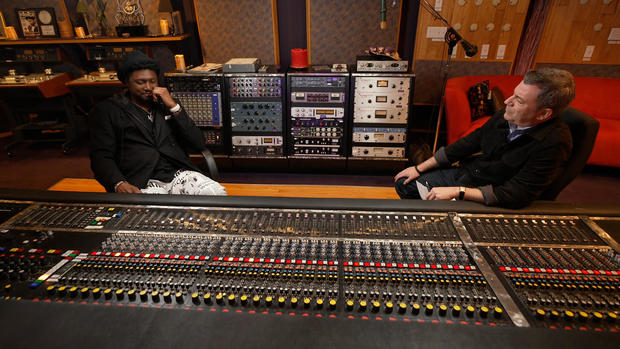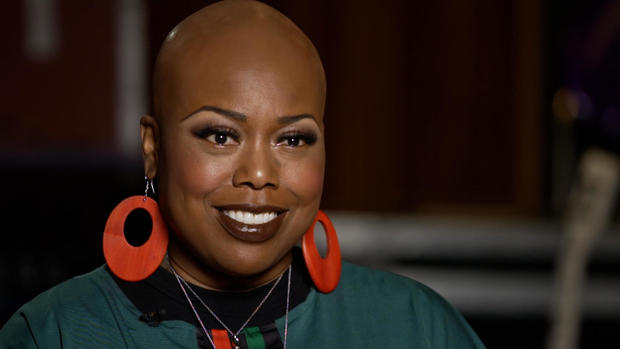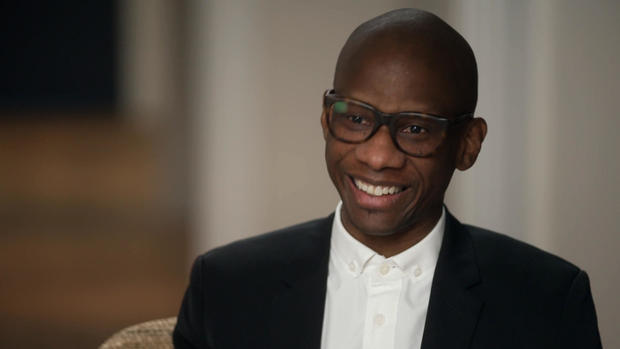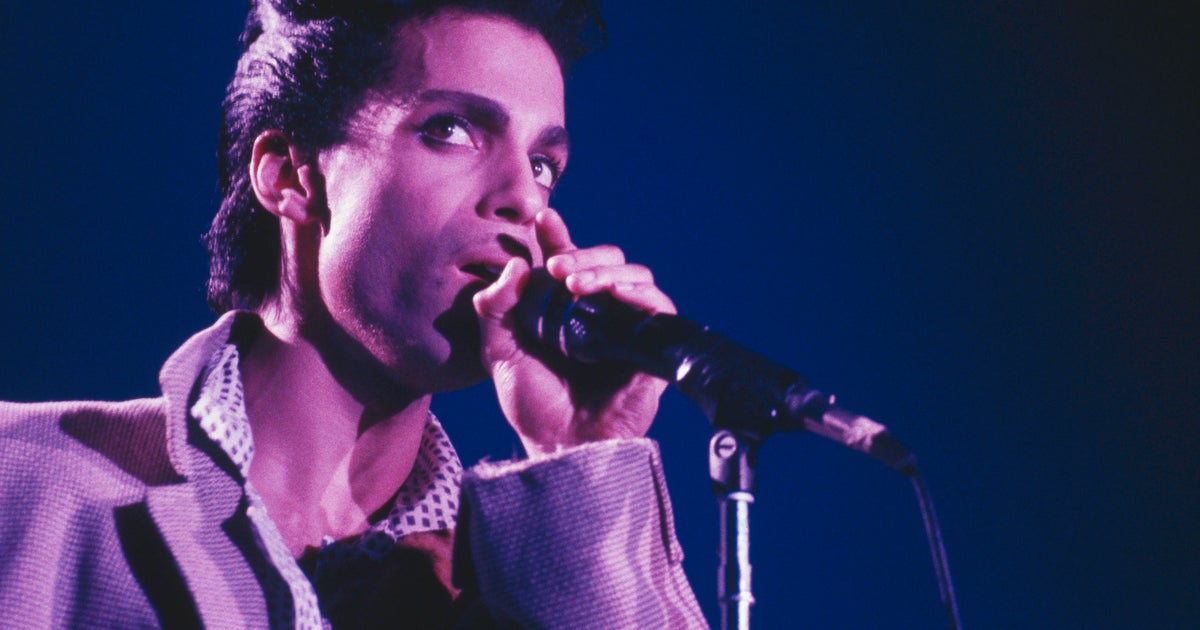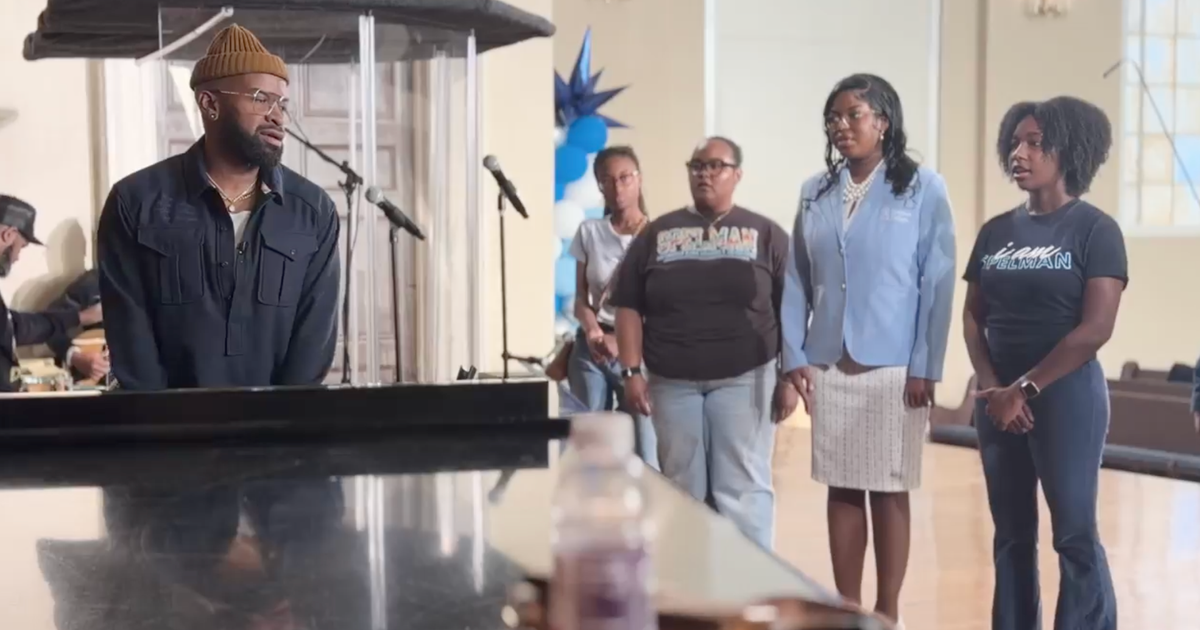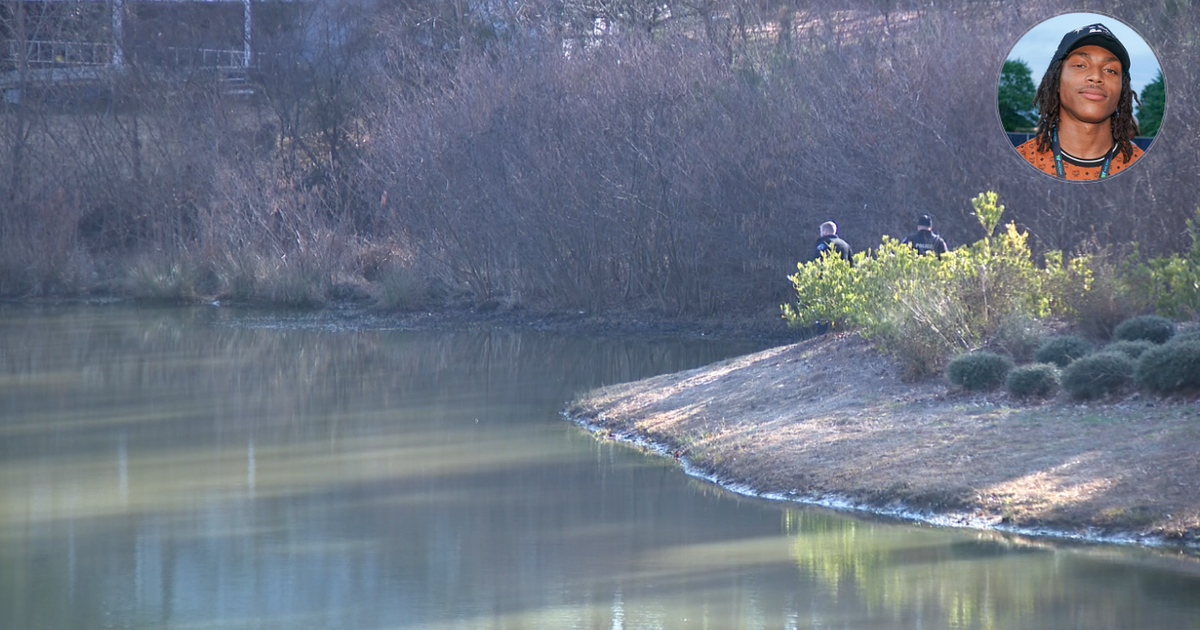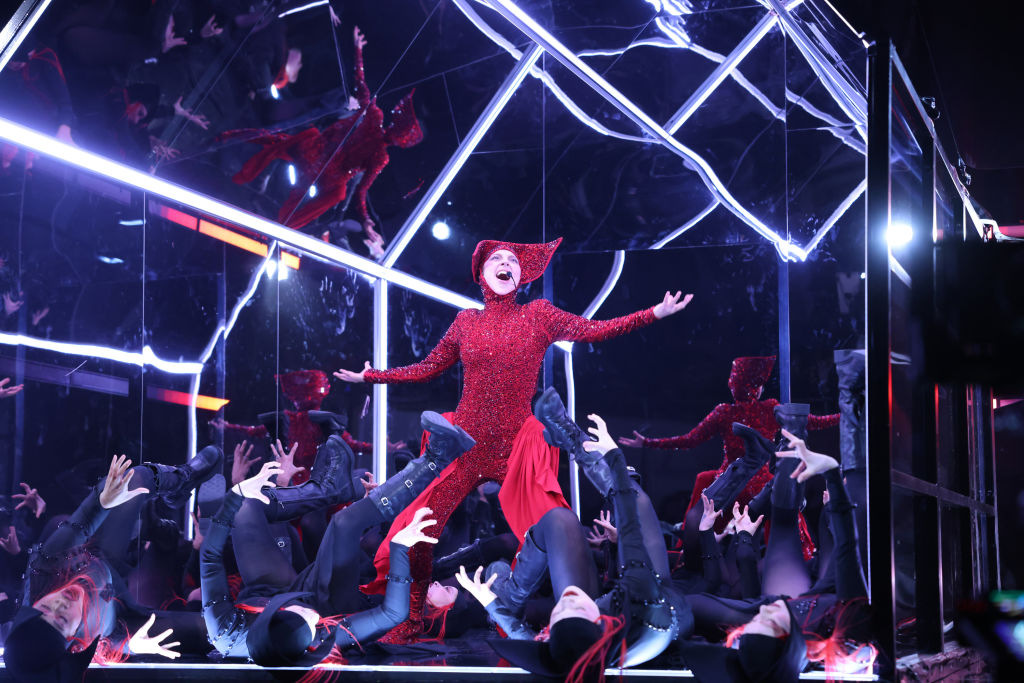Exploring the unreleased music in Prince's vault
Dig, if you will, the picture: It was 2010 and Prince set out on his "Welcome 2 America" Tour, threading the world and playing sold-out venues. He delivered a mix of anthems and pop hits drawn from his 39 studio albums. And yet, there was something curiously missing from that "Welcome 2 America" tour: songs from the album "Welcome 2 America" – an album Prince wrote and recorded right before the tour, but then never released or performed in public. That music - which you'll hear for the first time tonight - went into Prince's vault, a trove of material this blazingly prolific artist secreted away. Five years after Prince's death, administrators of his estate are cracking open the vault. "Welcome 2 America" and welcome to the singular ways of Prince.
Here he is on that 2010 tour, the riddle, wrapped in a mystery, wrapped in gold lamé. Let's Go Crazy was one of five number one hits. When Prince died, he was still selling more albums than any other living musician.
To unravel the Prince paradox, we started here: Paisley Park in Chanhassen, Minnesota, a suburb of Minneapolis - his hometown. From the outside, there's nothing Paisley about it. Enter and the place is a trippy dreamscape, Oz accented in purple, not green - though a pair of doves overhead is still white…
Now a museum, Paisley Park wasn't just where Prince worked; he lived above the shop so he could make music anytime inspiration struck - which was basically always.
The Prince estate invited us inside Studio B. We sat at Prince's soundboard with his longtime keyboardist and musical director Morris Hayes.
Morris Hayes: Have to ease into it, you know.
He gave us a preview of that missing album, "Welcome 2 America."
"Welcome 2 America": Land of the free home of the brave. Oops I mean land of the free home of the slave. Get down on your knees. Hit me. Welcome to America.
Deliriously versatile, Prince wrote the songs, sang the songs and played most instruments. He asked Hayes to add production value.
Morris Hayes: like he said, "Man, here's the record. I want you to overproduce it. Anything I don't want I'll take it away."
Jon Wertheim: Is there another song from the album?
Morris Hayes: Sure. This one's called-- "Check the Record."
"Check the Record": Let's check the record. See what it said. Seems like your girlfriend was in my bed…
Typical Prince, the album resists genres. Lyrically, it's, by turns, sly, suggestive and subversive.
"Check the Record": Let's check the record. See what it said. Seems like your girlfriend was in my bed…
Jon Wertheim: Did he ever say why he didn't put this out there?
Morris Hayes: No. And I remember asking him-- about it. And he says, "Well, we'll just have to revisit that down the line." 'Cause he was just onto the next project.
Jon Wertheim: You think that's what it was, he's just--
Morris Hayes: Just I'd never seen anybody that had that much work inside of them. It's just this unending stream of just music.
Hayes isn't exaggerating. For four decades, Prince worked to a furious beat, releasing an album roughly every year. Yet most of the music Prince created and recorded was never released. By one estimate 8,000 songs, that's hundreds of albums, never left Paisley Park.
Shelby J.: Well, music, you know, it ain't milk. It don't expire. You know.
Prince vocalist Shelby J. recalls the music factory was open 24/7.
Shelby J.: It was nothing strange about getting that call at 2:00 a.m. and he got inspired. And he wants to record something.
Morris Hayes: Yeah.
Shelby J.: So it's, like, what-- he'd say, "What are you doin', Shelby?" I'm, like, "I'm asleep. It's 2:30 in the morning." (LAUGH) "What--" he's, like, "You wanna sing? Feel like singing?" And I'm, like, "Y-- you-- yeah, Prince. I feel like singing." He's, like, "How soon can you get here?"
Jon Wertheim: How often would you guys record something that was great that wasn't released?
Morris Hayes: That was all the time.
Shelby J.: Ooh, all the time. And I asked him about that. I'm, like, "What's gonna happen to this music?" And he's, like, "Oh, somebody'll-- somebody will do somethin' with it," very cavalier. Like, "I won't be here." But he knew it would see the light a day.
Prince warehoused all this music one floor below the studios in what he called the vault. Our cameras weren't allowed beyond this door to the vault's exterior, but the Carver County's Sheriff's Office got inside during a 2016 investigation into Prince's death at Paisley Park, eventually ruled an accidental overdose of painkillers.
At age 57, Prince died with no spouse, no children and, crucially, no will. His sister and his five half-siblings have been named heirs, but, five years on, are locked in a legal dispute over the estate. Meanwhile, the bank overseeing the estate, called in Troy Carter, one-time Lady Gaga manager and Spotify executive, to sort out the music collection and unlock its value.
Troy Carter: The Prince Vault is this legendary thing. So my first visit to Paisley, of course the first place that I wanted to go was to-- to see the vault. It's literally a vault. (LAUGH) It's a room full of shelves floor to ceiling, with tapes. You have recorded music. A video archive. Then you have a written archive. You know, just looking at the penmanship, the drawings that he would do.
Troy Carter: You know, "Little Red Corvette," there's a picture of a little red Corvette in the lyrics. I have literally have chills on my arm right now because I remember the first time seein' the lyrics.
Jon Wertheim: Do you have favorite songs that are down there?
Shelby J.: Wow. Same page, (SNAP) but a different book. So much more in common if we only look. Yeah.
On the rare occasions he mentioned it at all, Prince downplayed the music he didn't release. Here he is in 2014.
Arsenio Hall: Is there a huge vault of material…?
Prince: I don't go back in time and listen to it. I worked on it and brought it as far as I could right then. A lot of it I didn't even finish.
Maybe so, but we learned that for all its—and his—mystique, Prince stayed out of the vault for the most mundane of reasons.
Troy Carter: When they told me that he hadn't been in the vault in years, I thought there was gonna be this story about how he left behind his old materials to focus on new artistic endeavors. And they said, "No, he just forgot the password to the vault. And so he started putting stuff in his pre-vault. And then that turned into more and more rooms.
Carter had the contents moved here to be digitized. Iron Mountain is a secure repository in California. A team of archivists bears the responsibility of listening to the music and proposing new releases. The Estate has kept pace with Prince, putting out roughly an album a year since his death - a mix of re-releases and newly mined gems.
Troy Carter: Sometimes when we think we have the plan, we'll come across something that blows our mind.
Here's an example: In 1983, one year before the release of Purple Rain, the album that cemented Prince as a star, he recorded this rehearsal session. Just him at the piano, working out new arrangements.
Troy Carter: And there's a piece on that project of him crafting Purple Rain. To hear the seeds of the idea and to see how that song was sorta formed, and then to finally get to, you know, that song being one of the most iconic songs of all time, it was r-- really special.
Fast forward 25 years: that little tune Prince worked out at the piano? He played it on one of the world's largest stages: the 2007 Super Bowl halftime show. Morris and Shelby backed him that night.
Jon Wertheim: A little wet that night.
Shelby J.: A little wet.
Morris Hayes: A little bit.
Shelby J.: Just a little. (LAUGH)
Jon Wertheim: Was he worried about that?
Morris Hayes: No.
Shelby J.: Not at all. Not at all. He was unbothered.
Morris Hayes: He even asked for more rain--
Jon Wertheim: He asked for more rain?
Shelby J.: Yeah.
Shelby J.: "Can you make it rain harder?"
Morris Hayes: Listen when you get Purple Rain in the rain--it don't get no better than that.
The ultimate showman, Prince was at his most meticulous on guitar. He could deliver searing solos on stage that sounded, unmistakably, like they do on his album.
Jon Wertheim: What did Prince tell you about his approach to playing a guitar solo?
Morris Hayes: He said, "Morris, if you wanna do a great solo. Like, write it out, think it out so that, when you go to play it, you can play it again…"
Shelby J.: And-- he would make that ugly face, you know, the face.
Morris Hayes: Gotta make the ugly face.
Shelby J.: Gotta make the ugly face.
Morris Hayes: You had to get some contortion face. Or the note won't even get out right unless you make a ugly face.
Shelby J.: And I would watch him play guitar and sound out what he's doing with his mouth. And I could see that connection.
For all the music he churned out, Prince performed with the spontaneity of a human jukebox, rearranging songs and set lists on the spot and zinging his band members when they hit sour notes.
Morris Hayes: And he'd just say, "Well, looks like Morris just bought me a new pair a boots (LAUGH) this week,"
Jon Wertheim: What does that mean?
Morris Hayes: That means you just got fined. You just got docked because you messed up. And now he's gonna take your money and go buy some new boots with it.
Jon Wertheim: Was there a flipside to that, though, but could he be too controlling?
Morris Hayes: Well, he micromanaged. I think, you know, the-- the--the key to Prince is that you always knew who was runnin' the ship.
The seas weren't always smooth. Prince famously chafed against a music business he said didn't treat artists fairly. In 1993, he changed his name to a symbol and splayed the word "slave" across his face — part of an ongoing battle with his record label to control his own output.
Prince eventually won ownership of his master recordings and his estate now controls the music. The challenge: monetizing the catalog, while trying to do right by Prince.
Jon Wertheim: Do you sort of have this "What would Prince do," echoing?
Troy Carter: I wanna make sure that Prince isn't somewhere in heaven giving me the side-eye. You know, that-- that famous Prince side-eye.
Jon Wertheim: "Carter, why'd you put that out there?"
Troy Carter: Exactly. (LAUGH)
Hard to fathom Prince's final act of ambiguity - not leaving behind a will. As his heirs wrangle over his estate—and try to put a value on something awfully hard to quantify—Prince fans remain loyal, making the pilgrimage to Paisley Park, and awaiting the next musical motherlode from his vault.
Troy Carter: You know, the fans think they've heard everything. So whenever we can find things that the fans haven't heard is like a victory.
Morris Hayes: This one's called "Born 2 Die."
This summer will mark the release of "Welcome 2 America," an album about racial inequality and social injustice. Recorded more than a decade ago just outside Minneapolis, it crackles with relevance today.
Shelby J.: The injustice inequality, Prince knew about that firsthand, you know, growing up as a black man. He knew what that was. And he could - he could write about it and he could sing about it. When you got Breonna Taylor, you got Ahmaud Arbery, you got the George Floyd goin' on, it's like we are/the movement is happening. And I think that the world is ready to absorb what he's saying on this album. I mean it's right on time. You know, right on time.
Prince will stay right on time for years, even decades. We've done the math and with so many songs in a vault now cracked open, we could get a Prince album every year for the rest of the millennium. Or, as The Artist himself might put it, until three-thousand-zero-zero.
Produced by Nathalie Sommer. Associate producer, Kaylee Tully. Broadcast associate, Elizabeth Germino. Edited by Warren Lustig.


